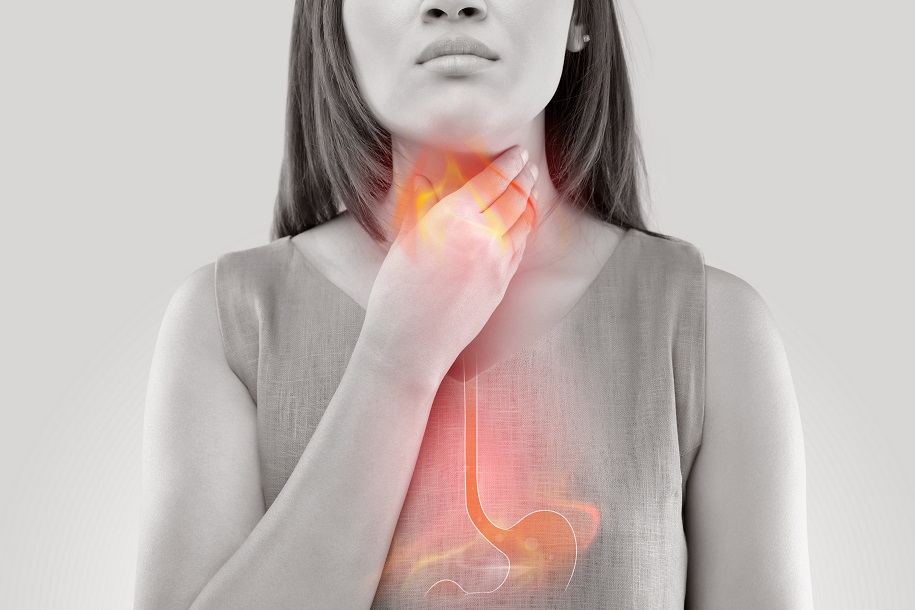
August 30, 2021
Gastroesophageal reflux disease, or GERD, is a condition in which gastric juice from the stomach flows back into the esophagus. Typical symptoms associated with GERD include dysphagia, heartburn, and regurgitation. If the condition worsens, patients may also experience severe symptoms such as sore throat, otitis media, non-cardiac chest pain, and dental manifestations. Treatment of GERD depends on the severity of the condition and symptoms of the patient.
Let’s look at some common treatment options to manage GERD.
Treatment without Medication
The first course of treatment that doctors prefer includes lifestyle and diet modifications that help in the management of GERD. This includes the following:
- Losing Weight: Obesity is a common reason for GERD. Excess belly fat can cause extra pressure on the stomach leading to hiatal hernia and backflow of digestive juices to the stomach. Losing excess belly fat can help reduce pressure on the stomach and relieve acid reflux.
- Avoiding Alcohol and Citrus Juices: Alcohol and citrus juices are highly acidic and contribute to high acidic levels in the stomach causing heartburns. Also, alcohol has excess calories that can lead to obesity, which is a major cause of GERD.
- Eating Small Frequent Meals: Eating large meals at a time increases upwards pressure against the lower esophageal sphincter (LES) leading to heartburn.
- Change in Sleeping Position: Keeping your head elevated by eight inches can help control the backflow of stomach juices to the LES and help to relieve GERD.
Treatment with Medication
If lifestyle and diet changes are not effective in the treatment of GERD, doctors may prescribe some medications to address the symptoms. The medications that are used in GERD management include:
- H2 Receptors Antagonists
- Proton Pump Inhibitors
- Prokinetic agents
- Antacids
Surgical Treatment Options
Surgical treatment options are meant for patients with high severity of gastroesophageal reflux disease which cannot be treated with lifestyle changes or medication.
There are majorly two surgical procedures that are commonly used for treating GERD: Nissen Fundoplication and LINX.
Nissen Fundoplication
Nissen Fundoplication is a traditional surgical procedure that involves wrapping the upper end of the stomach around the lower end of the esophagus: LES. This helps with regurgitation and acid reflux.
LINX
LINX is a device that is implanted surgically around the LES to restore the reflux barrier. The device is made from titanium magnetic beads that expand when food is being swallowed. After the food or liquids have passed through the esophagus, the magnets return to their original place, creating a barrier between the stomach and esophagus to prevent reflux.
Wrap Up
GERD can be painful and degrade a patient’s quality of life. It is important to consult a doctor if you experience continuous heartburn or any other symptoms of GERD. If you or a loved one is experiencing acid reflux and seeking medical advice in or around Dallas, Fort Worth, and nearby areas, look no further than DFW Bariatrics. Our team of experienced doctors has a track record of successfully treating gastrointestinal problems such as acid reflux. To schedule an appointment with one of our doctors, call 469-620-0222 or email [email protected].
